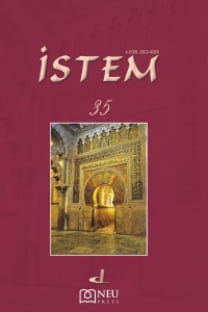MEVLÂNA’NIN ŞİİRİNDE [HZ.] YUSUF
Mevlâna’nın Mesnevîsi’nin çevirilerinden biri, Pîrâhan-i Yûsufî, ‘Yusuf’un gömleği’ adını taşımaktadır. Bu isim, hem çeviren Muhammed Yusuf Ali Şah’ın adı ve Mevlâna hem de babasının gözlerinin tekrar görmesini sağlayan Hz.Yusuf’un gömleğinin kokusuna dair rivayeti ima etmektedir. Böylece mütercim, Mevlâna’nın manevi kokusundan bir şeyler aktarma teşebbüsünün okuyucularının gözlerini açabileceğini düşünmektedir. Diğer taraftan bu başlık, güzelliğin mükemmel timsali olan Hz.Yusuf ile ilgili, Mevlâna’nın eserindeki atıf ve imaların da bir hulasasını ortaya koymaktadır. Mesnevî’nin hemen başlarında Mevlâna, Şems-i Tebrizî’nin hatırasını zihinlerde canlandırmaktadır. Mevlana’ya göre, mâşuku hatırlamak, güzel bir kokuyu içine çekmek gibidir. Güzel koku, âşıka mutlu günleri hatırlatır ve kalbi coşturur. Güzel koku aynı zamanda, Hz.Yakub gibi gerçekten görme melekesinden mahrum olan kimselere zindelik kazandırır ve Mevlâna’nın sözleri ruhen zarar görmüşlere şifa verir. Bizzat Kur’ân-ı Kerîm’de “en güzel kıssa” şeklinde isimlendirilen Hz.Yusuf’un kıssası, ilk zamanlardan günümüze kadar şairler için değerliydi. Hz.Yusuf ile ilgili hikâyeler Mesnevi’de de görülmektedir. Ancak Mesnevî’de, Hz.Yusuf’un hayatının diğer yönleriyle birlikte rüya tabirciliği rolüne yapılan atıflar, Divan’a oranla daha yaygındır. Bunlardan en dikkat çekeni, Hz.Yusuf’a hediye edilen aynanın ve Züleyha’nın aşkının tavsif edildiği hikâyelerdir. Divan’da mâşuk, yüzlerce defa Yusuf olarak gösterilmiştir. Tanımlar ve lakaplar çoğunlukla basmakalıptır. Değişik şiirlerde, farklı vezin ve ölçülerde hemen hemen benzer kelimelerle hitap edilir. Diğer taraftan Kur’an’daki kıssanın hemen hemen bütün muhtevası ve Kısâsu’lEnbiyâ’daki ayrıntılı olarak ele alınışı Mevlâna’nın eserinde görülür
YUSOF IN MAWLANA RUMI’S POETRY
One of the Urdu translations of Mawlana’s Mathnawi is called Pireahan-i Yusufi, ‘Yusuf’s shirt’, alluding to the name of the translator, Muhammad Yusuf Ali Shah, as well as to the tradition that the fragrance of Yusuf’s shirt restored his blind father’s eyesight. Thus, the translator assumes that this attempt to convey something of Mawlana’s spiritual fragrance may open his reader’s eyes. At the same time, this title sumps up many allusions and references to Yusuf, the pragon of beauty, in Mawlana’s work. At the very beginning of the Mathnawi, Mawlana conjures up the memory of Shams-i Tabrizi. According to Mawlana, to remember the beloved is like inhaling a fragrance, a fragrance that reminds the lover of happy days and quickens the heart. Scent also brings refreshment to those who are deprived of the actual view, like Jacob, and Mawlana’s words heal the spiritually impaired. The story of Yusuf, called in the Qur’an itself “the most beautiful story”, was dear to poets from early days onward. Stories connected with Yusuf appear also in the Mathnawi where allusions to his role as interpreter of dreams are more common than in the Diwan although the other aspects of his career are also mentioned. Most prominent is the story of the mirror which was presented to him and the description of Zulaykha’s love. In the Diwan, the beloved is alluded to hundreds of times as Yusuf. Often, the descriptions and epithes are stereotyped. In different poems he is addressed with almost the same words. On the other hand, almost all the ingredients of the Qur’anic story and its elaboration in the Qisas al-Anbiya appear in Mawlana’s work
